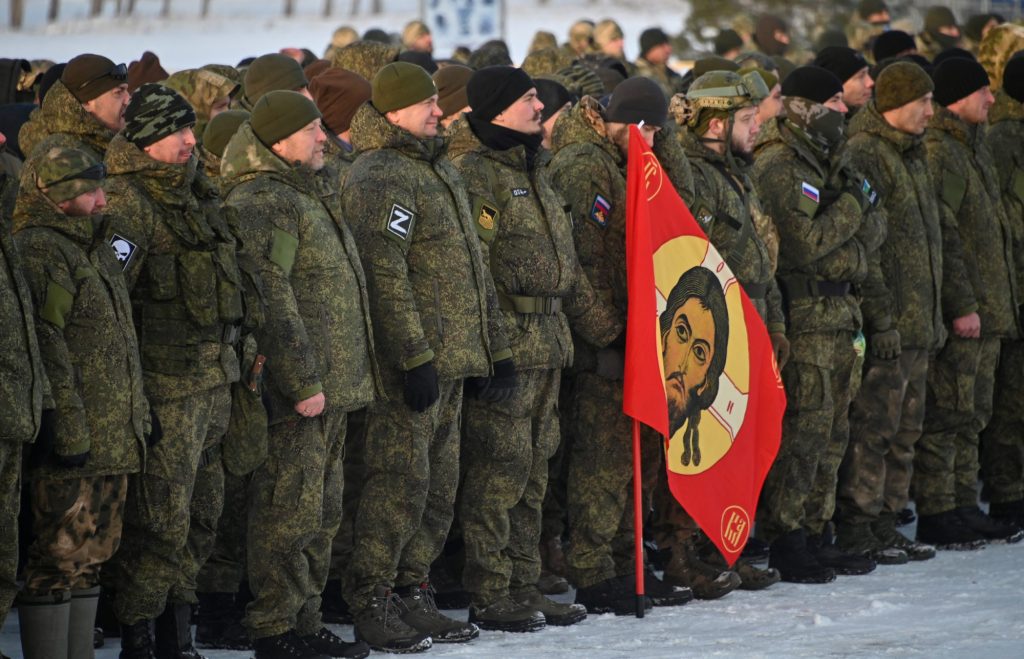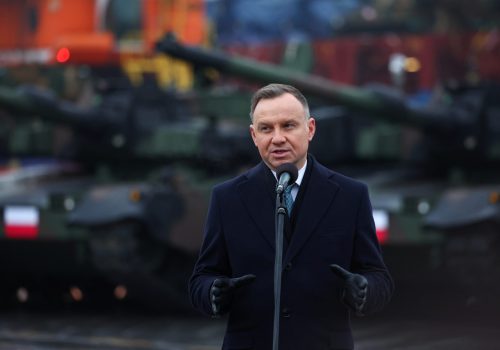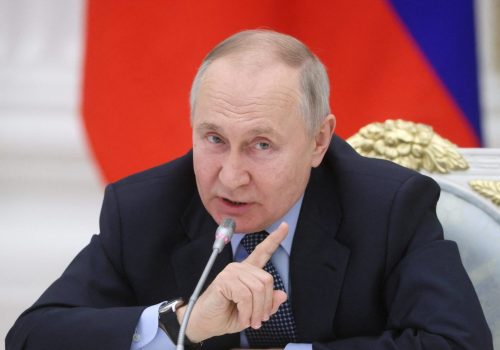As Russia’s full-scale invasion of Ukraine approaches the one-year mark, speculation is mounting that Moscow will soon launch a major new offensive. Indeed, some commentators believe this offensive may already have begun, with reports emerging in recent days of Russian troops attempting to advance at numerous points along a frontline stretching hundreds of kilometers across southern and eastern Ukraine.
This widely anticipated offensive is an attempt by Moscow to regain the initiative following months of battlefield defeats and humiliating retreats in Ukraine that have undermined Russia’s reputation as a military superpower. Vladimir Putin is now desperate to demonstrate that his invasion is back on track and has reportedly massed huge reserves for a new push to overwhelm Ukraine’s defenses. However, after a year of catastrophic losses that has left many of Russia’s most prestigious military units seriously depleted, doubts remain over the ability of untested replacement troops to carry out large-scale offensive operations.
Initial indications are not encouraging for the Kremlin, to say the least. Thousands of Russian soldiers including elite marines and special forces troops are believed to have been killed in late January and early February during a badly bungled attempt to storm the town of Vuhledar in eastern Ukraine. The failed attack sparked widespread dismay and anger among pro-Kremlin military bloggers, with many accusing Russian army chiefs of incompetence. The disaster contributed to what British military intelligence said was likely to be “the highest rate of Russian casualties since the first week of the invasion.”
Stay updated
As the world watches the Russian invasion of Ukraine unfold, UkraineAlert delivers the best Atlantic Council expert insight and analysis on Ukraine twice a week directly to your inbox.
One of the key reasons behind the sharp recent rise in casualties is Russia’s growing reliance on mobilized personnel with limited military training. In September 2022, Vladimir Putin responded to escalating losses in Ukraine by launching Russia’s first mobilization since World War II. Most of the approximately 300,000 men who were mobilized last year have now been deployed to Ukraine. The arrival of these additional numbers helped Russia to blunt Ukraine’s advances during the winter months, but it is unclear whether mobilized troops will prove as effective in an offensive capacity.
Many mobilized Russians appear to be less than enthusiastic about their new role as the shock troops of Putin’s faltering invasion. Since the first week of February, a growing number of video appeals have been published on social media featuring groups of mobilized soldiers complaining about everything from a lack of basic military equipment to the suicidal orders of their superiors. In one fairly typical video, the wives and mothers of mobilized soldiers from Tatarstan claim their men are being used as “cannon fodder” in Ukraine.
With hundreds of thousands of mobilized Russians expected to take part in Putin’s big offensive, this emerging trend could pose a significant threat to the Kremlin. If current casualty rates are any indication, the coming attack could result in unprecedented loss of life and spark a complete collapse in morale among Russia’s already demoralized mobilized troops. This would make life very difficult for the Russian army in Ukraine, which would find itself confronted by a breakdown in discipline that would severely limit its ability to stage offensive operations. Nor is there any guarantee that the problems would stop there. Russia’s own experience in 1917 is a reminder of the unpredictable consequences that can follow when an army in wartime stops taking orders.
Eurasia Center events

It is still premature to speak of mutinous mobilized soldiers, of course. Nevertheless, maintaining military discipline may be the biggest single challenge currently facing the Putin regime. At present, the Russian dictator appears in little danger domestically, with independent polling by the Levada Center continuing to identify strong Russian public support for the war in Ukraine. While some question the validity of this data, there is no escaping the near complete absence of any genuine anti-war activity in today’s Russia. One year since the invasion began, most opponents have chosen to remain silent or have left Russia altogether.
Likewise, Putin seems to have weathered the worst of the economic storm brought on by Western sanctions. The Russian economy has been hard-hit by measures imposed over the past year, but the damage has been significantly less than anticipated and is certainly far from fatal. This may change if the country’s economic outlook continues to worsen, but at this stage there is no indication that shrinking incomes or the departure of Western brands from Russian stores will fuel protests anytime soon. While members of the Russian elite are also feeling the pinch, most owe their positions to Putin and see no realistic alternative to the current status quo, however imperfect.
The relative calm on Putin’s home front contrasts sharply with the precarious position of his army in Ukraine. Putin had initially anticipated a quick and triumphant campaign that would confirm Russia’s Great Power status and extinguish Ukrainian statehood once and for all. Instead, he finds himself embroiled in the biggest European conflict since World War II with his battered army in increasing disarray and his hopes of military success dwindling.
In order to snatch a victory of sorts from the jaws of defeat, Putin must now rely on the overwhelming numbers provided by mass mobilization. This is a tried and tested Russian tactic, but it also carries considerable risks. Sending thousands of untrained men to fight against battle-hardened and highly motivated Ukrainian troops could result in the kind of carnage that breaks armies. If that happens, the fallout would likely reverberate throughout Russia and destabilize the entire regime. Putin may then find that saving his invasion is the least of his worries.
Peter Dickinson is Editor of the Atlantic Council’s UkraineAlert Service.
Further reading
The views expressed in UkraineAlert are solely those of the authors and do not necessarily reflect the views of the Atlantic Council, its staff, or its supporters.

The Eurasia Center’s mission is to enhance transatlantic cooperation in promoting stability, democratic values, and prosperity in Eurasia, from Eastern Europe and Turkey in the West to the Caucasus, Russia, and Central Asia in the East.
Follow us on social media
and support our work
Image: Russian reservists recruited during mobilization line up during a ceremony before their departure in Omsk, Russia. January 6, 2023. (REUTERS/Alexey Malgavko)




